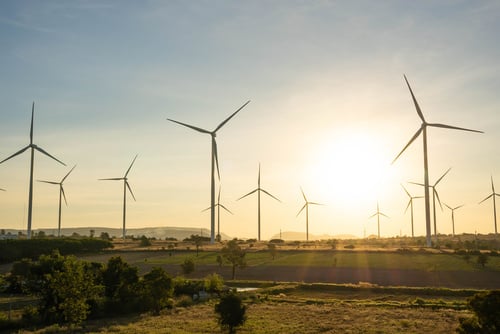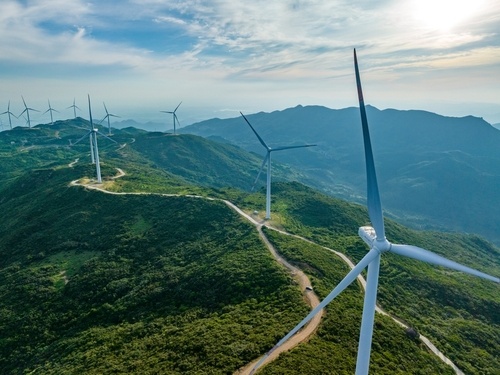Election
Manifesto Pledges
Last month, we took a look at how the key contenders in this year’s snap General Election have previously approached the subject of energy and impacts on the environment. While this gave us an indication of the different parties’ attitudes towards this sector in the past, things can change from one Parliament to another.
With all parties now unveiling their manifestos for the 2017 Election, we’ve dug down to those policies concerning energy and the environment. From production to consumption, from renewable sources to the lasting environmental effects, do the prospective policies of each party ensure all bases are covered?
Conservatives
The Conservatives focus heavily on keeping prices competitive and affordable, with plans to commission an independent review on energy costs. They aim for households and businesses to benefit from the lowest energy costs in Europe, with large businesses using energy more efficiently.
A diverse range of energy sources is championed, with continued support promised for the North Sea oil and gas production, offshore wind farms and natural shale gas. Plans to leave the environment in a “better state than we inherited it” are affirmed by their prior ratification of the Paris Agreement and the Coalition’s introduction of the Climate Change Act.
Labour
Labour focuses its energy policy on 3 points: affordability, the security of energy supply, meeting climate change targets. There is a commitment to renewable energy projects but a continuation of nuclear power. They would also ban fracking, which “locks us into an energy infrastructure based on fossil fuels”.
There are plans to take energy back into public ownership and a desire to introduce a new Clean Air Act and promote increased biodiversity. During Brexit negotiations, Labour want to prioritise maintaining access to the energy market, in an effort to secure tariff-free energy trade with Europe, saving UK people and businesses money.
Liberal Democrats
The Liberal Democrats look back on their progress in green matters during the Coalition while accusing the Conservatives of dropping support for renewables. They propose introducing five new environmental laws, including a Zero-Carbon Act to cut emissions by 80% before 2040 and to zero by 2050.
Other pledges include a commitment to the Paris Agreement, opposition to fracking and more investment in renewable technologies, including immediate plans to approve the tidal lagoon project in Swansea. They also accept that nuclear power has a place as long as concerns about safety and waste disposal are addressed.
UKIP
UKIP delivers pledges in stark contrast to many of the other major parties, largely topped off by its intention to repeal the Climate Change Act 2008. Calling it “a competitive cross-party ‘dash for green’”, they question whether the target to reduce greenhouse gases by 80% by 2050 is even achievable.
Other plans include removing VAT and green levies from energy bills and investing in shale gas. However, the party is keen to point out that any fracking should not be permitted in national parks or areas of natural beauty, so as to has as little impact on the environment as possible.
Green Party
The Green Party aims to put environmental issues at the forefront of this General Election that’s become easily dominated by other items like the NHS, social care and Brexit. Alongside pledges to protect and safeguard the environment, they make commitments to completely abolish coal power stations, subsidies to fossil fuels, fracking and nuclear power.
Looking ahead to a future of renewable energy and “investing in community-owned energy”, they also intend to nationalise the energy sector back for better control of energy supply to homes and businesses as a public service.
Scottish National Party
The SNP is committed to challenging the UK government on a range of issues in Scotland, leading with adequate funding for the ongoing oil and gas industry. Alongside traditional methods, they underline the importance of renewable energy as “a Scottish success story,” with pledges for increased onshore and offshore developments.
There’s a desire for equality in energy tariffs, with costs in Scotland higher than the South East of England – providing extra fuel for the SNP’s criticism of nuclear power at Hinkley Point C. They’re also keen to point out the devolved government has already produced a Climate Change Plan exceeding initial expectations and a moratorium on fracking.
Plaid Cymru
Plaid Cymru points out that Wales produces more electricity than it consumes, yet their energy bills are the highest in the UK. They would aim to shift towards decentralised networks, creating a Welsh energy company capable of profiting from local energy generation.
More focus on renewables is on the cards, including tidal lagoons in Swansea, Cardiff and Colwyn Bay. They also pledge to introduce a new Climate Change Act with “ambitious but achievable” targets revised for 2030 and 2050. Energy-efficient housing, improved cavity wall insulation and protection of wildlife also feature strongly in the Welsh manifesto.






